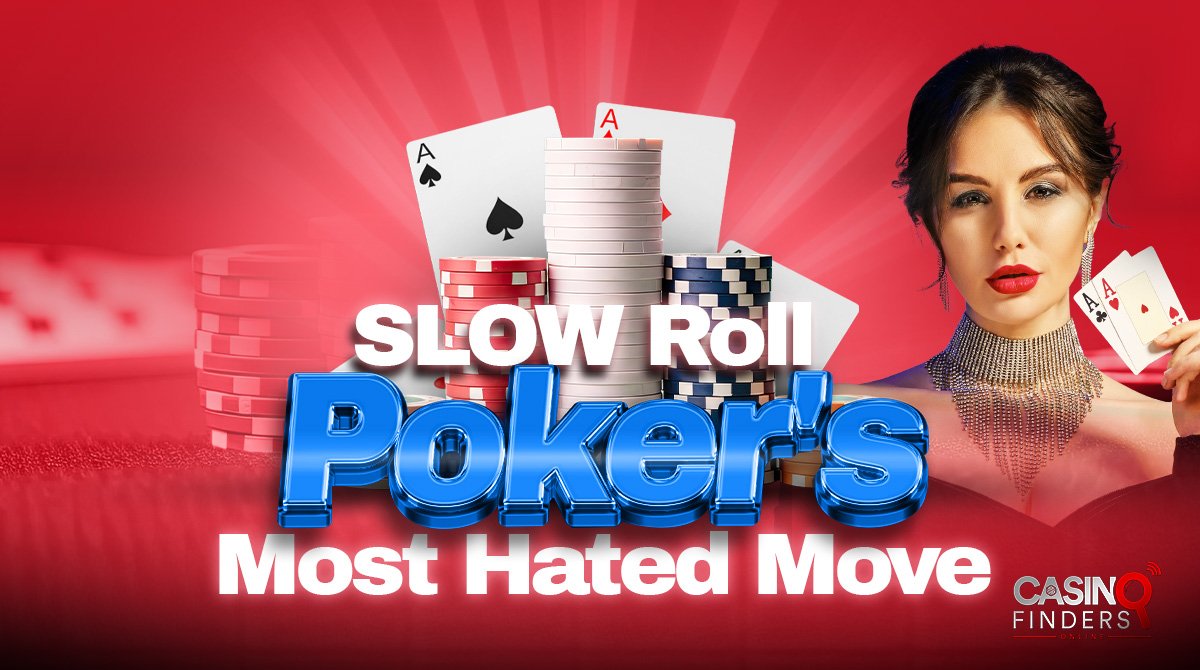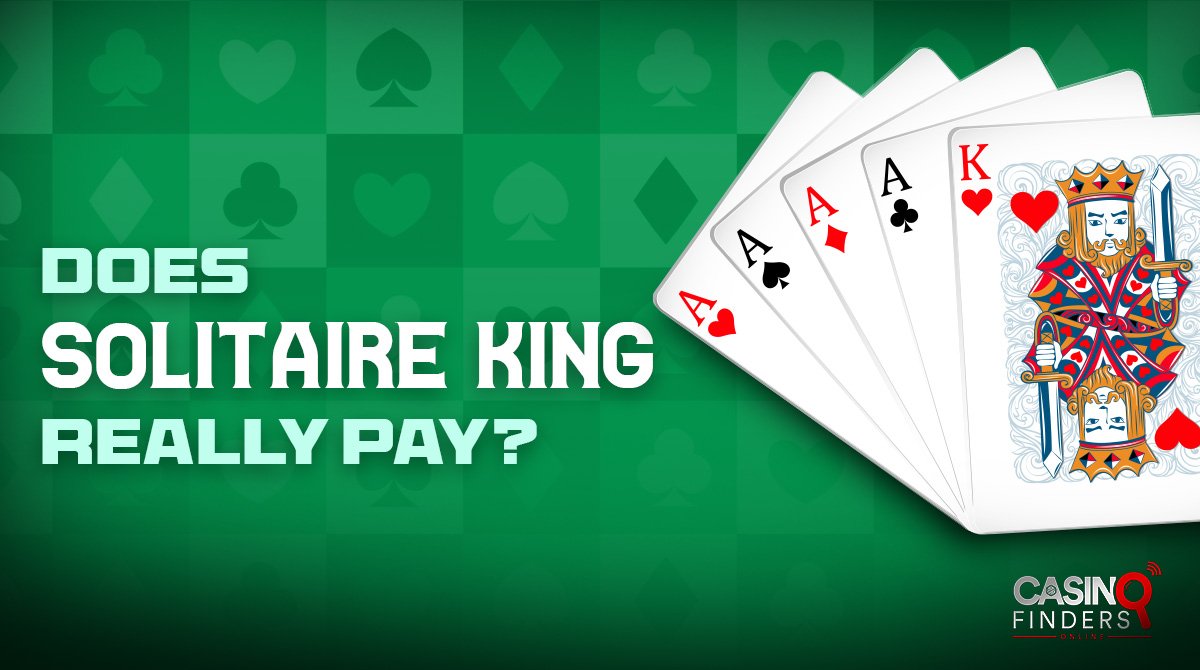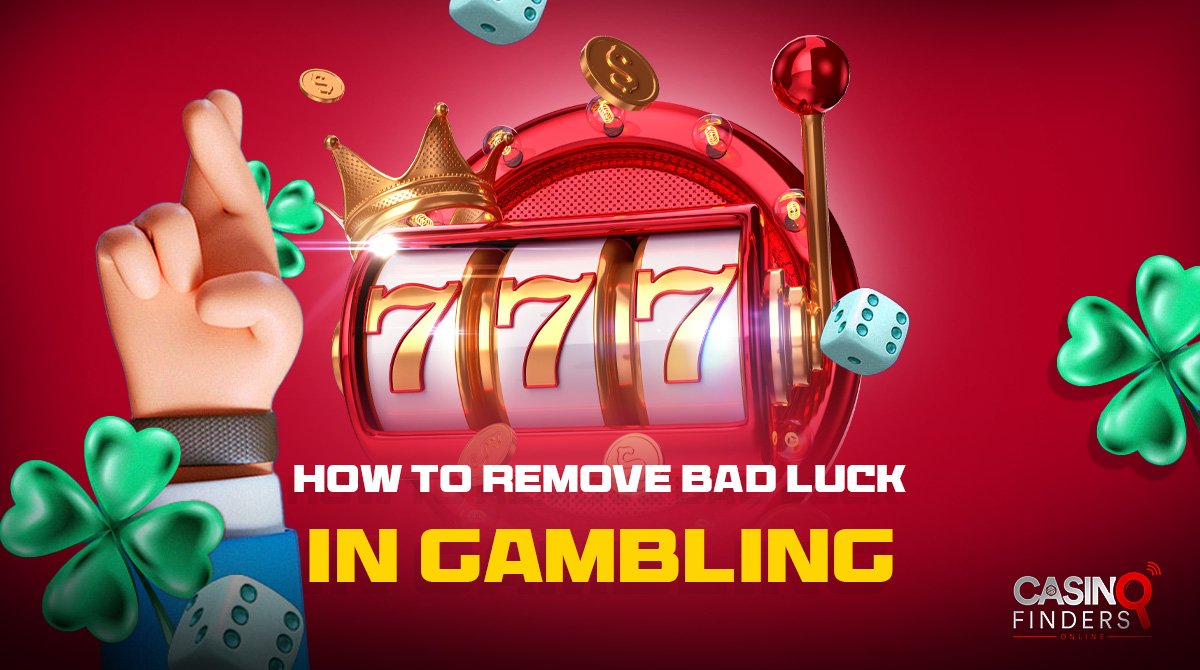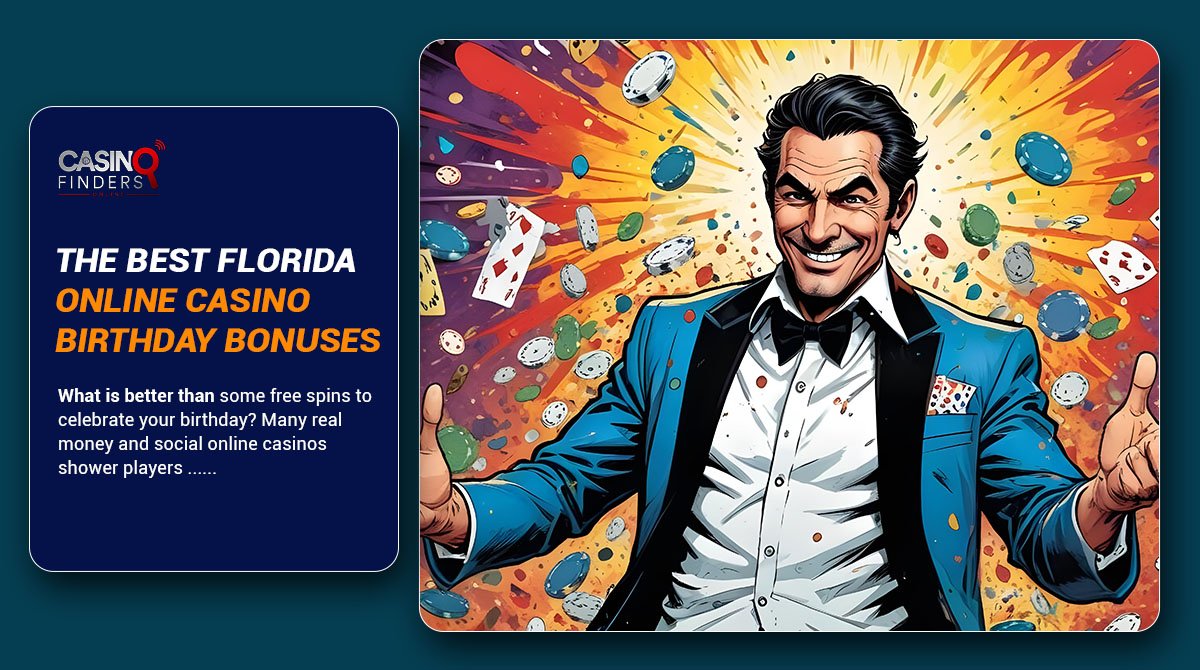No, we will not talk about the annoying concept of slow playing. Slow Rolling in poker is considered a downright horrible part of poker and a breach of poker etiquette-set of unwritten rules followed by poker players- and also a psychological trick. The majority of players and even fans consider it a big no-no to be avoided! But what is a slow roll in poker? This is the question we will answer in detail in this article and reveal the strategy involved to help you understand why it is better to avoid it.
What Is The Meaning Of Slow Rolling In Poker?
Slow rolling is when the player with the best hand makes a scene of calling a large, final bet. In other words, when you have a strong hand but it takes you forever to make an easy call when closing the action on the river, you are an annoying slow roller! Slow Roll also refers to a situation where you have a beating hand, and you know it but intentionally take a long time to reveal what you got on the showdown.
Suppose you have a ♥K J♥ the three community cards on the river are all ♥s. You bet, and your opponent calls. They didn’t raise. What does that mean? It simply means that you have the best possible hand. Instead of immediately revealing your cards, you hesitate and wait for your opponents to show their hands, letting them believe they have the beating ones. In this example, what you do is called slow rolling, and people may say bad words to you!
Is Slow Roll Against Official Poker Rules?
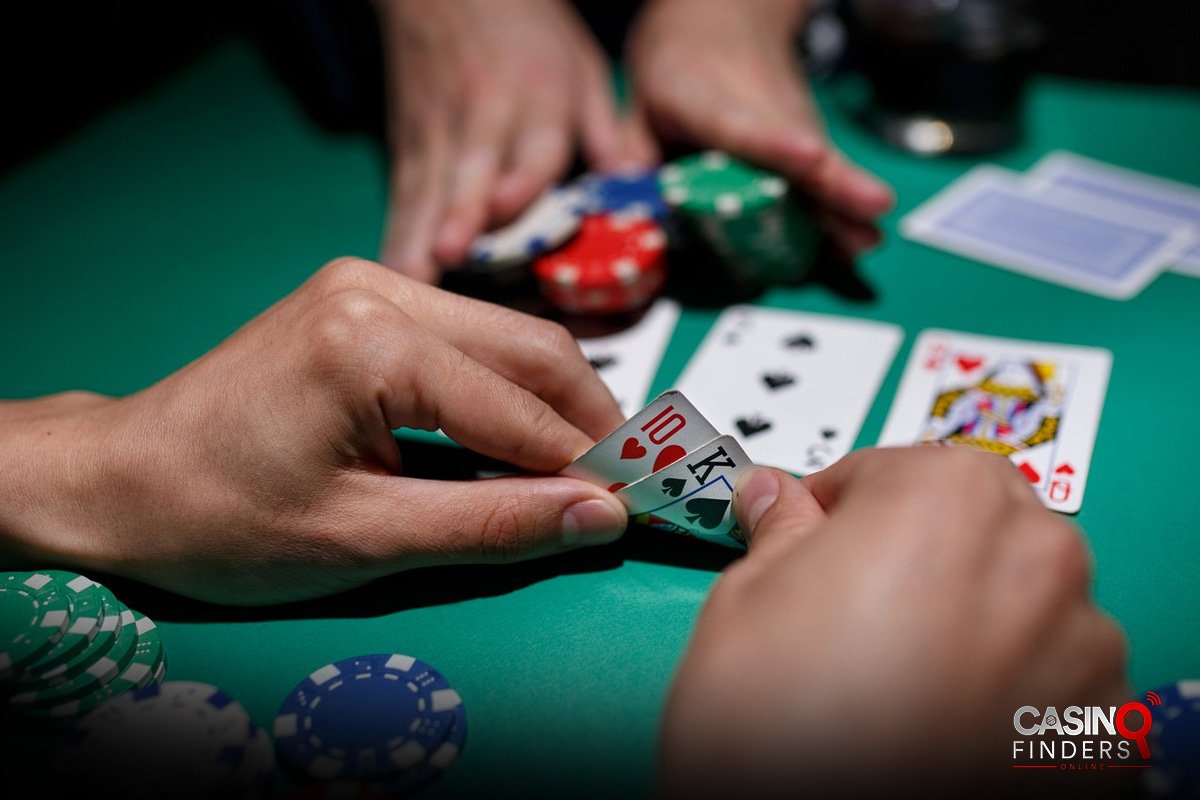
As mentioned, the act of slow rolling is pretty annoying and is against poker etiquette. In other words, there are no official rules stating that you cannot slow roll, or if you do, you face official penalties such as a couple of rounds away from the table. However, the act will gain you nothing except creating a negative and annoying character as a poker player in the minds of others and pros. Because poker etiquette is all about winning with discipline, common courtesy, and respect for your opponents. Slow rolling is completely against all these. After all, when you have a beating hand, why would you want to irritate others by not showing it? It has nothing positive and would damage your reputation as a poker player.
The Best USA Online Casinos of Nov 2024
Although the act of SR is not against official poker rules, every poker room has a manager who runs the games however they see fit. Hence, they can decide whether or not your slow rolling is disrupting games and annoying other players. If they decide so, you may receive a warning or even penalties.
The Psychology Behind Slow Rolling And Tips To Avoid Accidental Ones
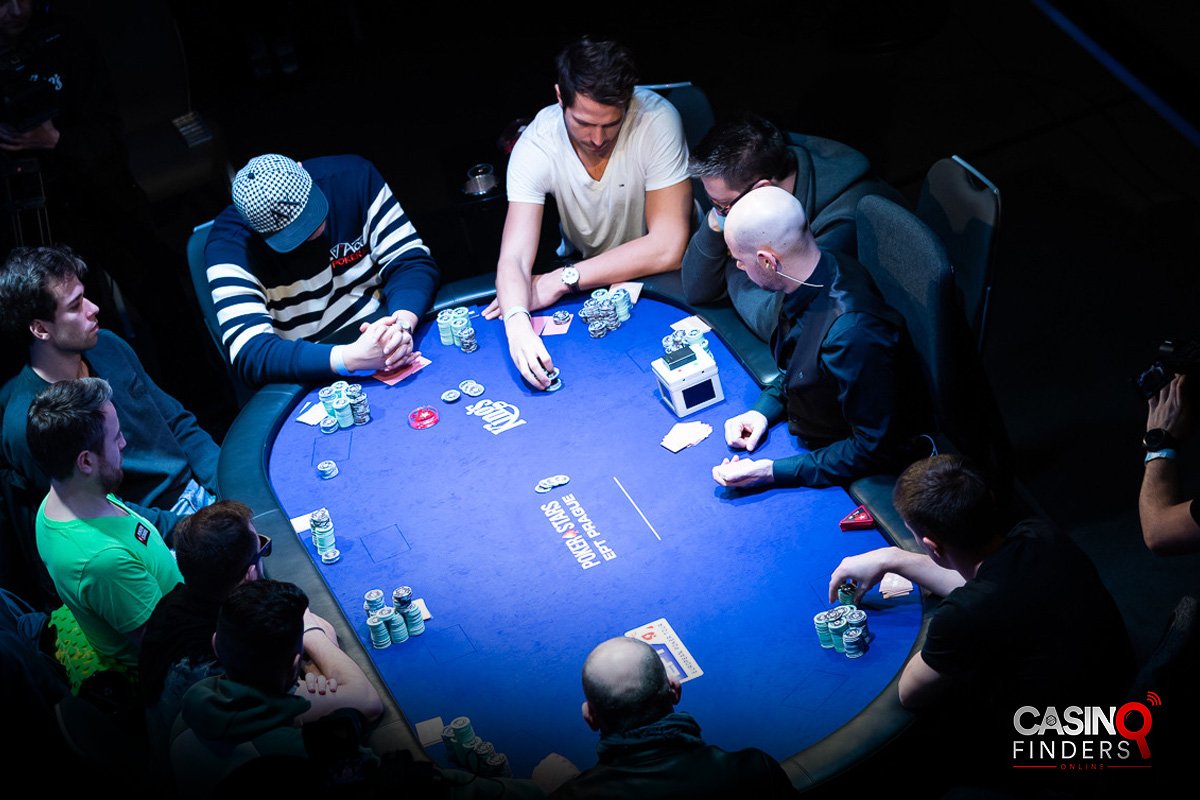
Every human behavior has some psychological reasons behind it, and the tendency for slow rolling in poker is no exception.
One possible reason is that it gives the slow roller a sense of power and control over the other player’s emotions. It is one of the main psychological drivers of human behavior. By nature, humans love a sense of power and love to show it off. By making the opponent wait and increasing their anticipation, the slow roller may feel a sense of enjoyment or even sadistic pleasure which psychologists call Schadenfreude (if you feel such pleasure, it is time to call your therapist because enjoying others’ miseries is definitely a warning sign.)
The second reason is rooted in “psychological manipulation” that should be distinguished from healthy social influence. According to Psychology Today, psychological manipulation refers to the act of manipulating someone’s thoughts and emotions to gain control or obtain benefits at their expense. So, slow rolling can be considered a way to intimidate or bully an opponent, as it can make them feel small or powerless. It also can be a way to tilt or provoke an opponent into making poor decisions, as the frustration and anger caused by the delay can cloud their judgment (either way, against morals and ethics).
Overall, some poker players consider slow rolling a highly effective tactic to unnerve opponents and gain an edge in the game. But it is not true. Because it is poor sportsmanship and can damage relationships with other players. Besides, the psychological reasons and unhealthy emotions behind the tendency to slow roll in poker could be warnings of a player’s emotional health status.
Now, how can you avoid intentional and unintentional slow rolling in poker?
For intentional attempts, we highly recommend discussing your feelings with your therapist to find the root causes for your urge to slow rolling.
To avoid unintentional and accidental slow-rolling attempts, we suggest the following tips:
- When it is your turn, try to turn your cards over.
- If you know you have the winning hand, turn your hand first unless there is a valid reason not to do so.
- When your opponents say, “You’ve got it,” hand over your hand -as long as you know it is the beating hand.
- Always be polite and respectful towards other players and the dealer.
- Be quiet, and don’t give other players false hope by acting weird!
Online Poker VS. Live Poker Slow Rolls
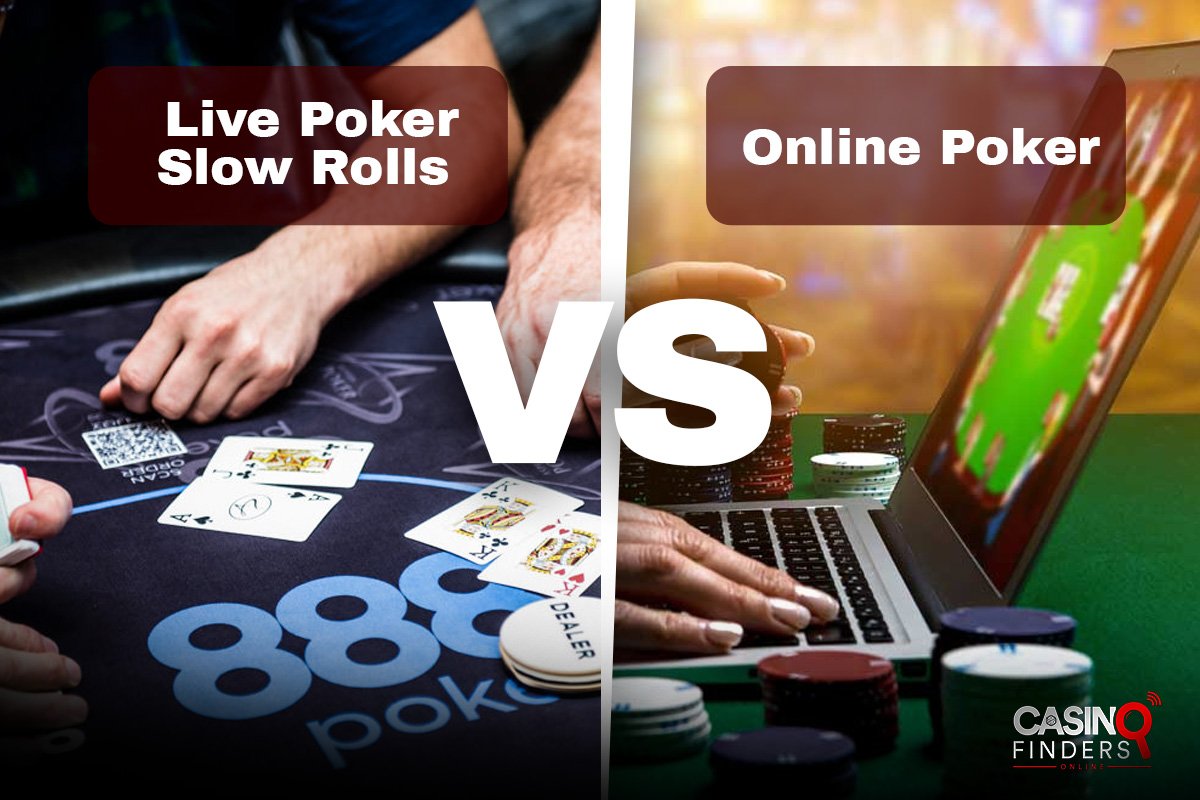
Slow rolling is always unacceptable in live poker and is always considered intentional – even if it is not. Because in live poker, every player has only one hand to focus on at a time. In other words, every player is playing at only one table. So, slow rolling should always be avoided in live poker.
On the other hand, while playing online poker, players may do multi-tabling, meaning they play at multiple poker tables at the same time. In this case, players’ attention can be diverted, and it takes longer to decide their move and act. While still unethical and unacceptable, online slow rolls are not always intentional, and a bit of delay can be considered okay.
Poker Newbies And Slow Roll Strategy: Classic Examples To Remember
As a newbie, you have to learn this poker slow roll ultimate strategy and make it stick to your mind. Also, remember that being a nice, polite, and disciplined player will pay off in the long run in more ways than you can imagine.
Stay Away From Slow Rolls! Always!
Here are classic examples from pro poker players to watch, learn, and see why you should avoid slow rolling.
| Slow Roller | Event | Opponent |
| Jack Ury | WSOP Main Event 2009 | Steven Friedlander |
| Mikel Habb’s | Aussie Millions Main Event 2016 | Sam Abernathy |
| Tonkaaaa | $109 online tournament | Jamie Staples |
Final Thoughts
The bottom line is to remember that slow rolling will not hurt anyone except the player who dares to do it. It is unclassy, unethical, annoying, and against poker etiquette. After all, you don’t want to be that ugly, jerk, cheap person who hurts everyone at the table, and no one wants to play with them. Do you?
The Best USA Online Casinos of Nov 2024





 Written by
Written by 



 Cashback Bonus
Cashback Bonus




